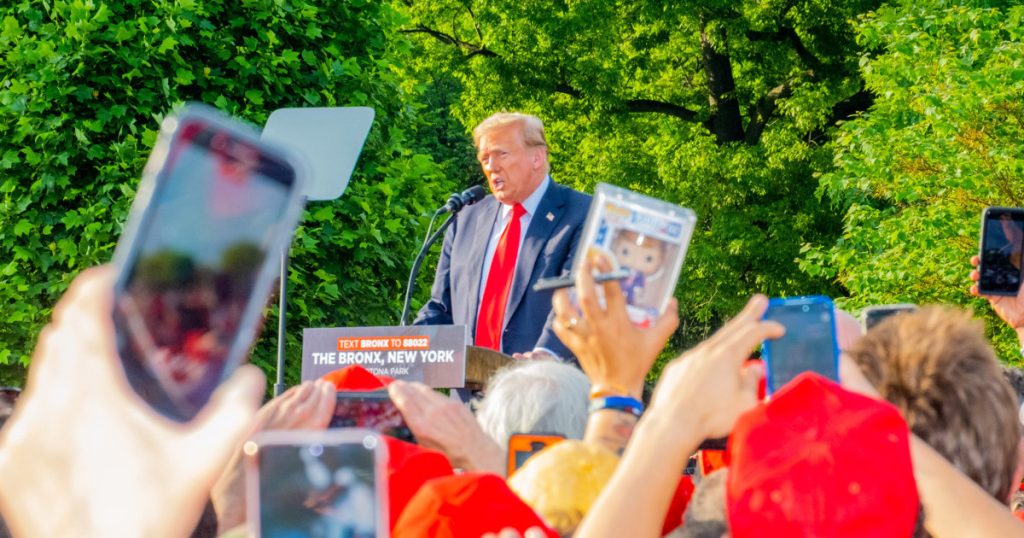Former President Donald Trump held a rally in the Bronx, a borough where he was widely rejected in the 2020 election. Despite being a long shot for Trump to win New York State, some voters in the Bronx expressed support for him, citing aspects of his presidency such as stimulus checks. Carolina de la Cruz, a Bronx resident, voted for Trump in 2020 and plans to do so again this fall, noting a need for change in her neighborhood that has become chaotic. Some voters also expressed concerns about the influx of migrants and strains on social services in New York City.
The rally in the South Bronx drew a diverse crowd, with some attendees expressing openness to giving Trump an opportunity and concerns about the lack of control over immigration during the current administration. The event was framed as an effort to reach out to minority voters, with Trump discussing his business career in New York, criticizing President Joe Biden’s policies, and promising to address issues in the city. Trump’s speech included chants of “build the wall” and “send them back” related to immigration, as well as pledges to renovate the New York City subway system and improve parks.
Members of New York’s Orthodox Jewish community, one of the more Trump-friendly demographics, were also present at the rally. Trump referenced the situation in Gaza and his beliefs about the 2020 election being rigged against him. The rally faced pushback from Democrats and critics, with concerns about Trump’s rhetoric and claims about his accomplishments. Democratic Rep. Ritchie Torres and Rev. Kirsten John Foy criticized the event as not being representative of the South Bronx and expressed doubts about Trump making inroads with communities of color.
Despite the criticism, some Bronx residents like Tim Rios found no issue with Trump coming to address the community. Rios mentioned that he did not think Trump was a bad president and highlighted the stimulus payments made under his administration. The rally highlighted divisions among Bronx residents, with some expressing support for Trump and others emphasizing the importance of rejecting his divisive rhetoric and policies. The event raised questions about the potential impact of Trump’s outreach efforts on Black and Hispanic voters leading up to the fall elections.


